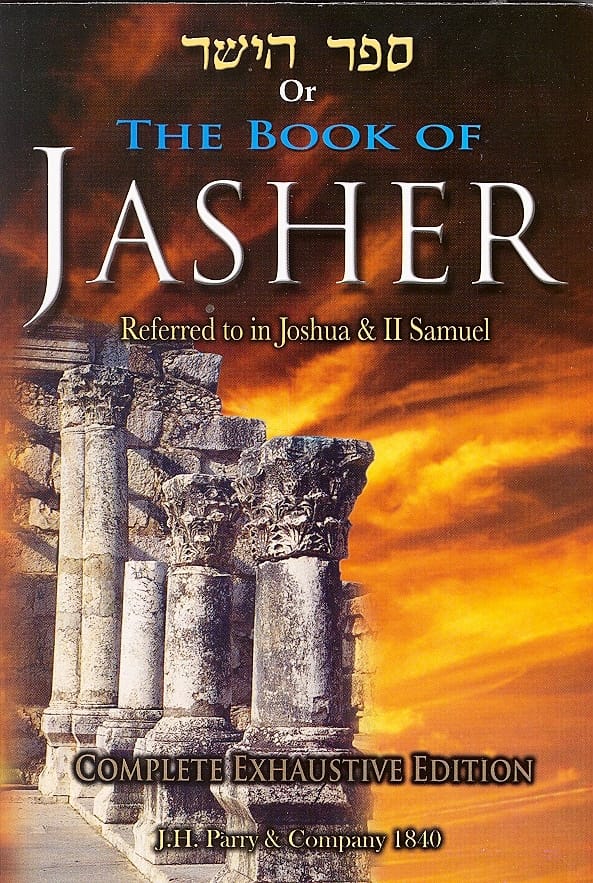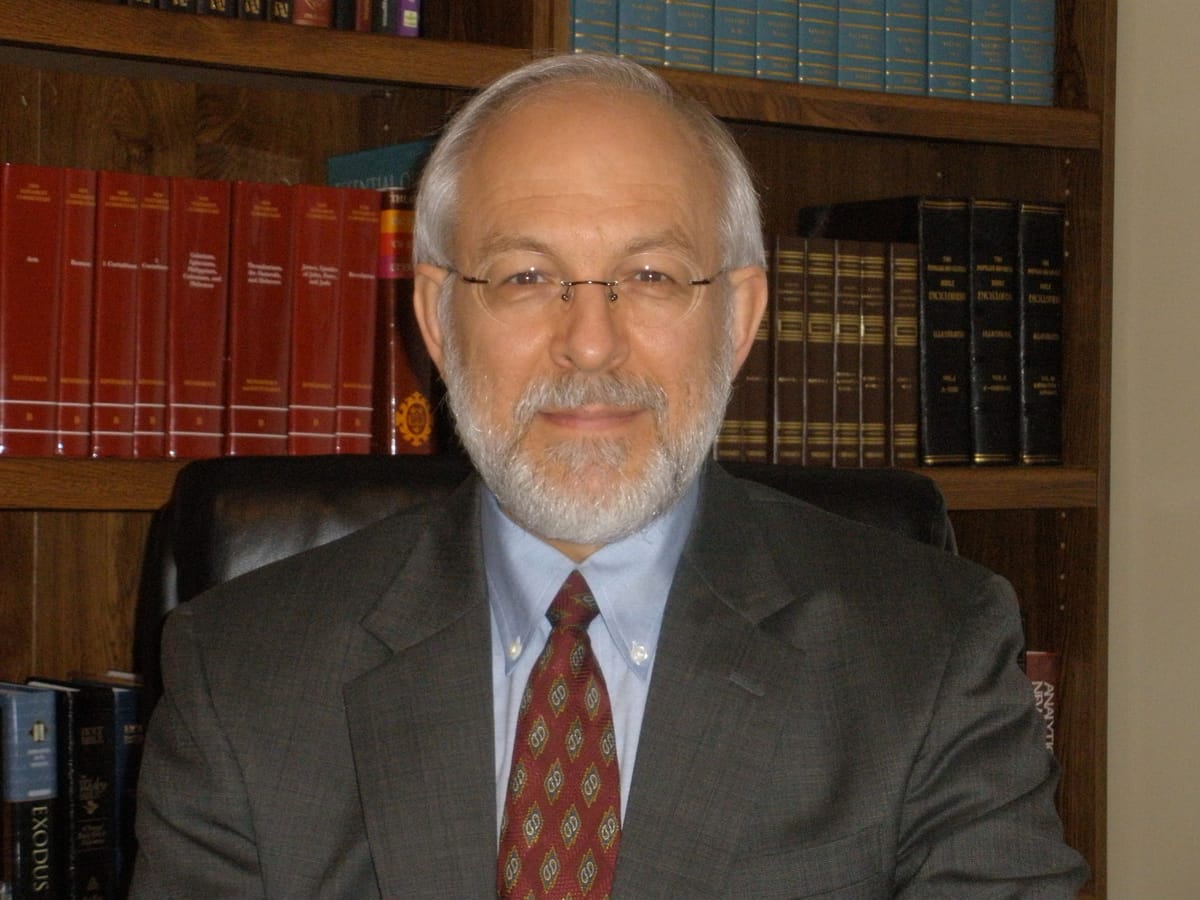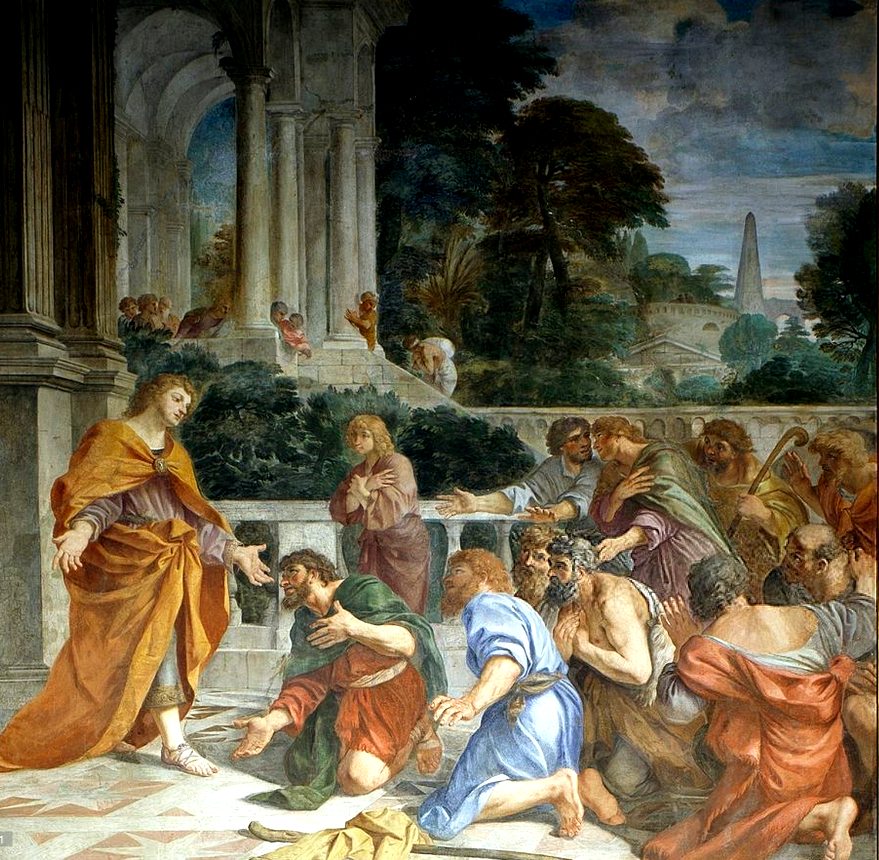When thinking of what the Bible has to say about the subject of forgiveness, many Christians will immediately recall the story of Joseph. Specifically, we recall the scene when Joseph reveals his identity to his eleven brothers.
Later, after their father Jacob-Israel dies, Joseph’s brothers are worried that now he will take revenge on them for their hatred of him those many years ago.
But Joseph is gracious and merciful. He lets them know that he had long ago forgiven them for everything, including how they had attempted to murder him. It is one of the most touching stories in all the Bible.
We shall draw upon that final scene to introduce some of the fundamental principles of biblical forgiveness, of jubilee forgiveness. Our study of the life of Joseph the Overcomer might be unique because in our 30-lecture series we interwove the story from the Bible with the account found in the book of Jasher.
Now, for those readers new to this ministry, hear me out. We do not place the book of Jasher on the same level as the Bible. The Bible is wholly inspired and inerrant. Since we have done so elsewhere, we shall not detour into substantial detail about the book of Jasher and other non-biblical books. Note: we used the word “non-biblical,” not “unbiblical.” There is a difference.
The book of Jasher gives a much expanded account of events from Adam to Joshua. We still carry The Book of Jasher and I have read it several times with great delight.

But beware: there are two versions of the book called by that name. I have demonstrated that one of them (the 1829 version) is in conflict with the Bible. To the best of our knowledge, the 1840 version is not. You can order The Book of Jasher from us. It is 254 pages. Just send $28 ($21 plus $7 s & h) and we will ship you a copy.
As I said, some years back, I presented a series of 30 lectures called Joseph the Overcomer. (Still available on 30 CDs, split into three albums, and available for the package price of $117 ($110 plus $7 s & h). This series of blogs is drawn partly from that series and thus we begin with a passage from the book of Jasher.
Jasher 58:30 And Joseph, king of Egypt, and his brethren, and all the children of Israel dwelt securely in Egypt in those days, together with all the children of Joseph and his brethren, having no hindrance or evil accident and the land of Egypt was at that time at rest from war in the days of Joseph and his brethren.
Jasher 59:1 And these are the names of the sons of Israel who dwelt in Egypt, who had come with Jacob, all the sons of Jacob came unto Egypt, every man with his household.
And then it goes on for 18 verses listing the names of all the sons and the grandsons, which we will skip.
19 And all the souls that went forth from the loins of Jacob, were seventy souls; these are they who came with Jacob their father unto Egypt to dwell there: and Joseph and all his brethren dwelt securely in Egypt, and they ate of the best of Egypt all the days of the life of Joseph.
20 And Joseph lived in the land of Egypt ninety-three years, and Joseph reigned over all Egypt eighty years.
21 And when the days of Joseph drew nigh that he should die, he sent and called for his brethren and all his father's household, and they all came together and sat before him.
22 And Joseph said unto his brethren and unto the whole of his father's household, Behold I die, and God will surely visit you and bring you up from this land to the land which he swore to your fathers to give unto them.
23 And it shall be when God shall visit you to bring you up from here to the land of your fathers, then bring up my bones with you from here.
24 And Joseph made the sons of Israel to swear for their seed after them, saying, God will surely visit you and you shall bring up my bones with you from here.
25 And it came to pass after this that Joseph died in that year, the seventy-first year of the Israelites going down to Egypt.
26 And Joseph was one hundred and ten years old when he died in the land of Egypt, and all his brethren and all his servants rose up and they embalmed Joseph, as was their custom, and his brethren and all Egypt mourned over him for seventy days.
Remember from our last lecture that the 70 days mourning was indicative of the time of mourning for a king in Egypt, and indeed, as we saw last time, Joseph was the king of Egypt after the death of his mentor Pharaoh.
27 And they put Joseph in a coffin filled with spices and all sorts of perfume, and they buried him by the side of the river, that is Sihor, and his sons and all his brethren, and the whole of his father's household made a seven day's mourning for him.
28 And it came to pass after the death of Joseph, all the Egyptians began in those days to rule over the children of Israel, and Pharaoh, king of Egypt, who reigned in his father's stead, took all the laws of Egypt and conducted the whole government of Egypt under his counsel, and he reigned securely over his people.
Now let us turn to Genesis 50 and read the remaining text in the book of Genesis. We had left off last lecture in verse 13 where it recounted the simple fact that Jacob’s sons buried him in the cave at Machpelah. All the details of the wars with the Edomites, the Midianites, and the children of the east were omitted from the Genesis account. And then we read in Genesis 50…
Genesis 50:14 And Joseph returned into Egypt, he, and his brethren, and all that went up with him to bury his father, after he had buried his father.
15 And when Joseph’s brethren saw that their father was dead, they said, Joseph will peradventure hate us, and will certainly requite us all the evil which we did unto him.
It has been 17 years now since Joseph had his family reunion, and after all this time, his brothers are still fearful that Joseph will take revenge upon them. Why that is we will take up later.
16 And they sent a messenger unto Joseph, saying, Thy father did command before he died, saying,
17 So shall ye say unto Joseph, Forgive, I pray thee now, the trespass of thy brethren, and their sin; for they did unto thee evil: and now, we pray thee, forgive the trespass of the servants of the God of thy father. And Joseph wept when they spake unto him.
I read a book recently which suggested that the brothers were lying, that they simply made up the story that Jacob commanded Joseph to forgive them, but as we saw last time in the book of Jasher, that was indeed the truth.
It seemed to me that Jacob had put it more or less in the manner of a request to Joseph to honor this desire of his father. Now why do you suppose that Joseph wept when they said this to him? I ask that rhetorical question just to try to prime the pump with you at first. To get your wheels turning. Your neurons firing.
18 And his brethren also went and fell down before his face; and they said, Behold, we be thy servants.
19 And Joseph said unto them, Fear not: for am I in the place of God?
In other words, to punish you? Joseph may have been the king of Egypt, but he recognized that the offenses that they had committed against him those many years before were not under the jurisdiction of the king of Egypt.
Joseph recognized that any punishment that may be rendered upon them would have to be done by God. And now listen carefully, since this next verse is in the view of many, including myself, the key verse in the entire story of Joseph.
His brothers are there prostrate on the floor before him, begging his forgiveness. The brothers are promising Joseph they will be his servants, and Joseph responds:
20 But as for you, ye thought evil against me; but God meant it unto good, to bring to pass, as it is this day, to save much people alive.
21 Now therefore fear ye not: I will nourish you, and your little ones. And he comforted them, and spake kindly unto them.
We will revisit all these verses later as we learn more about forgiveness; these are such powerful verses, but let’s finish the narrative first.
22 And Joseph dwelt in Egypt, he, and his father’s house: and Joseph lived an hundred and ten years.
23 And Joseph saw Ephraim’s children of the third generation: the children also of Machir the son of Manasseh were brought up upon Joseph's knees.
24 And Joseph said unto his brethren, I die: and God will surely visit you, and bring you out of this land unto the land which he sware to Abraham, to Isaac, and to Jacob.
25 And Joseph took an oath of the children of Israel, saying, God will surely visit you, and ye shall carry up my bones from hence.
26 So Joseph died, being an hundred and ten years old: and they embalmed him, and he was put in a coffin in Egypt.
Now at this point, let us look at the prophetic and historical types first, because I do not intend to spend much time on that. We have done a lot of that all the way through the story of Joseph. We have traced the descendants of the tribes to their modern day locations as we studied Jacob’s deathbed blessings.
One of the first types we find in the life of Joseph is when the brothers intend to kill him and he ends up going “down” to Egypt. He went down alright, not just geographically, but down figuratively into very low circumstances.
From being the favored son of a wealthy man in Canaan, Joseph finds himself a slave in Potiphar’s house. His great talents of administration and probably finance as well, allow him to rise to the overseer position in the household.
But then came the Zelicah seduction scenario. Joseph is framed for a crime he didn’t commit and he winds up going even further down—including literally. Because he finds himself down in a dungeon prison. But it was all in God’s plan. There he undoubtedly learned some of his greatest lessons. How to be humble, how to serve, and above all, how to forgive.
As I have described it before, it was as though Joseph had gone down—had been lowered into “Christ School,” a place where one has opportunities to learn to be more like Christ. We noted in previous lectures in this series some of the many ways in which Joseph was a type of Christ; we won’t repeat all those.
And so Joseph did learn those lessons. He learned how to overcome with forgiveness, with patience, with godly wisdom, with kindness, with long-suffering (he had plenty of that, didn’t he?). He learned how to overcome by developing love instead of hatred for enemies. He learned how to overcome with mercy and compassion, and with many more godly virtues.
Then, when it was God’s time for the beggar to come up out of the dung pile and sit upon thrones with princes (a reference to 1 Samuel 2:8), it seems that Pharaoh had a peculiar dream. And as we say, the rest is history.
Prophetically speaking now, we on this North American continent are the regathering place for all the tribes of Israel, yet I proffered my opinion that from another viewpoint, we, the United States and Canada are Joseph.
That is, we are Ephraim and Manasseh, and I gave some evidence for that previously. Here are several more things to add to it from a prophetic types and shadows perspective.
First, just as Joseph was separated from his brothers, so in 1776, Joseph, being represented by the United States as Ephraim, was separated from his brother nations in the Old World.
Secondly, we recognize that Egypt is a type of the world. We grant, of course, that Great Britain was the dominant world power. Yet it is certainly true that in the 20th century and continuing to this day, that Ephraim-the United States sprang to the forefront of world affairs and world power. So that sign could be considered a tie, as to who is Ephraim.
However, number three, when it comes to this next one, I don’t see any way that Great Britain has ever fulfilled it in the British Isles. Because Joseph’s land, the U. S. and Canada, have been called “the breadbasket of the world.” Just as Joseph fed the world from the granaries of Egypt, so has America and Canada. The United Kingdom never had the resources to do that.
And now here is a lesson I wish our State Department and Commerce Department would learn from the story of Joseph. This concerns our foreign aid programs. You see, Joseph sold grain to the rest of the world, but to his brother Israelites, he returns their money in their sacks to them.
And so foreign aid to our brother Israel nations is freely given, when they are in dire need. But to non-Israelite nations, grain and all other commodities should be sold, not simply given away. This could come in many forms. The point is that something must be received in return when dealing with non-Israelite nations.
And I am probably judging rashly there because I am fairly certain that any so-called “free” foreign aid from the United States comes to the recipient nations with any number of strings attached. Unfortunately, it is the Mystery Babylonians who have been in charge of “our” government for a century and more, and therefore, they have used that economic power for expanding their evil empire.
Okay, enough on who’s who in the types. Again, I want to stress, I am not being dogmatic about that; but I did want to share another perspective. We who know our Israelite heritage have inherited much of our understanding from the old British-Israel writers of a century and more ago, including the idea that Great Britain is Ephraim and the USA is Manasseh.
We think they have it backwards, but that certainly seemed to those earlier writers to make the most sense a hundred and fifty years ago.
I have been reading many of those old writings, culling the best and publishing some on our website, but I have to tell you that their understanding was off-base in some respects. That is not to condemn them in any way; because they were right on the money in many ways as well.
But where they were incorrect, they were expounding the best they could with what they had available. We have the benefit of hindsight and can now correct their errors. There is no doubt in my mind, that if the Lord tarries, that a hundred years from now, our spiritual descendants will find some things wrong with our writings as well. That is simply the way it is, for we, too, are doing the best we can to the limits of our present knowledge.
Now in just reviewing some of the other types we have seen throughout this series, we discussed the heart-rending picture of where Judah volunteered to his father Jacob, to stand as surety for the safety and welfare of Jacob’s beloved Benjamin.
We saw that type fulfilled ultimately in Jesus from the tribe of Judah, and how when Judas was replaced, that all his apostles were from the tribe of Benjamin. It pictures Jesus-Judah as surety for his Benjaminite apostles.
Furthermore, we saw in Joseph’s actions toward Benjamin—remember how the book of Jasher related that Joseph had Benjamin come up and sit with him on his throne, and how Benjamin got five times the portions of the other brothers, and how Joseph showed Benjamin the star map and somehow this revealed to Benjamin that this prime minister of Egypt next to him was none other than his supposedly long-dead brother Joseph. Remember all that?
And then further, how Benjamin represents the neck in the body of Christ? And how all that showed how our identity as Israel may not become general knowledge until after the first resurrection and the translation of the overcomers? It’s all there, go back and review the CD lectures if you need to.
Finally, here is a biblical type we have not yet brought forth in this study.
(To be continued.)
~END~




